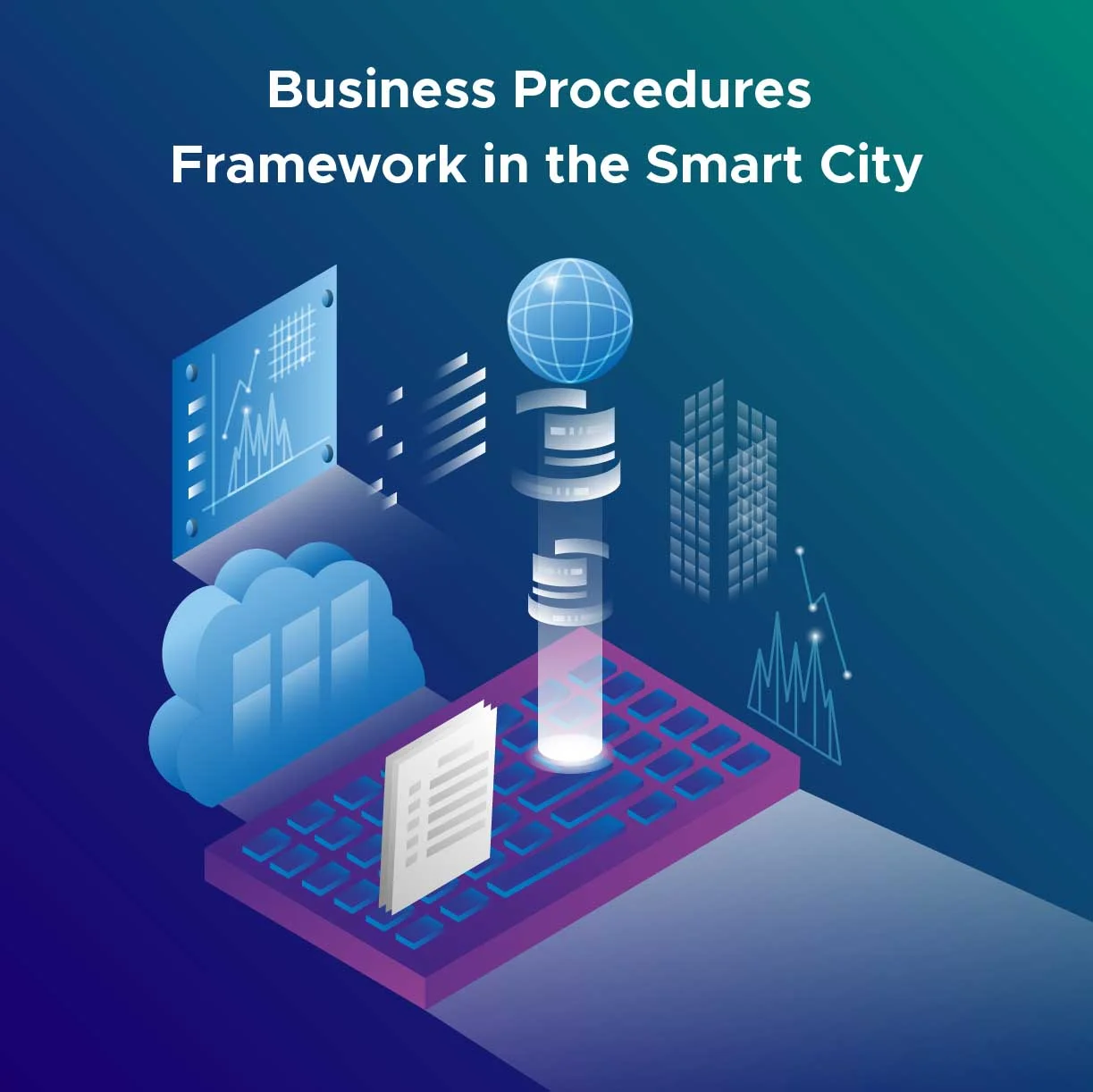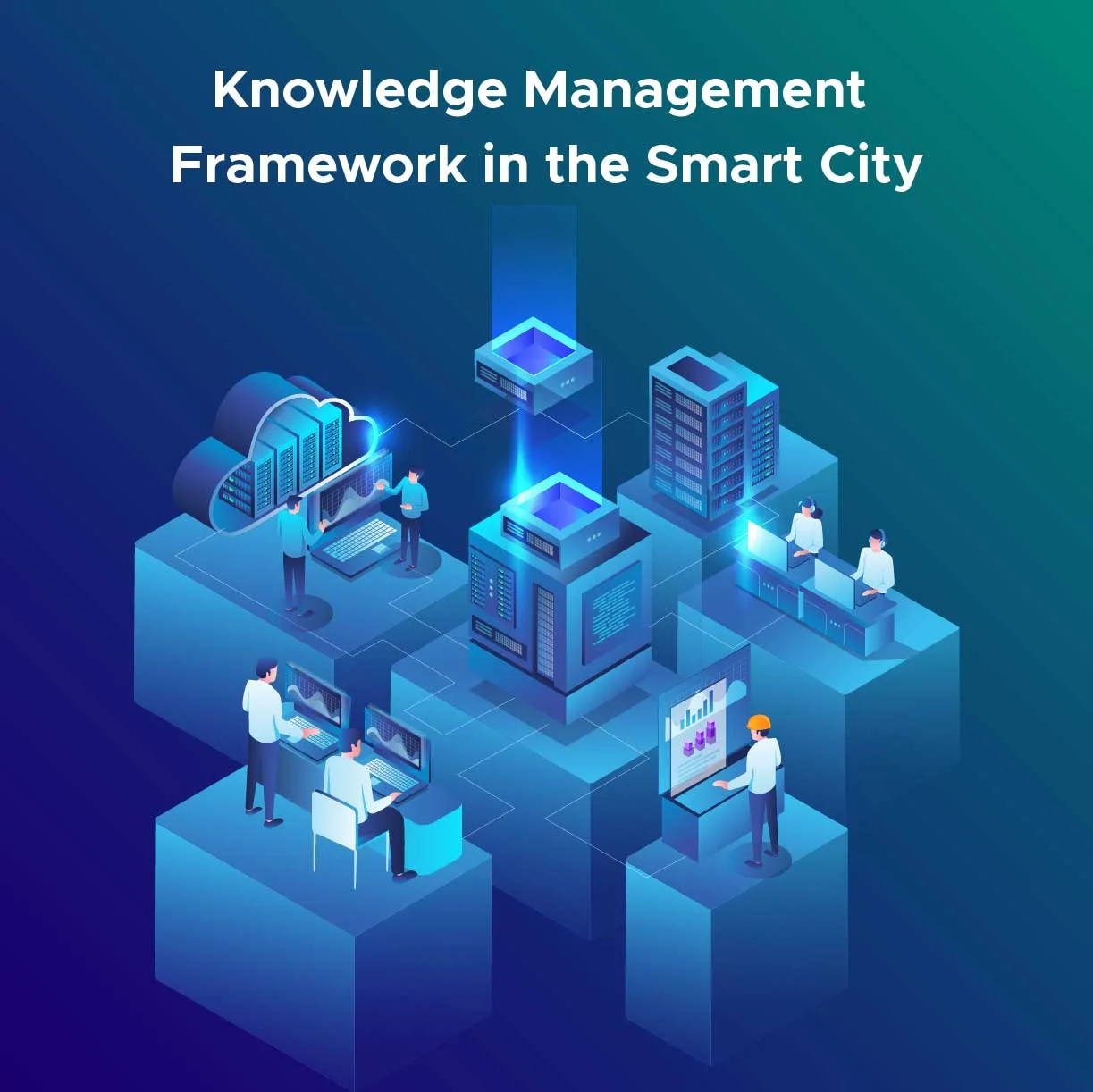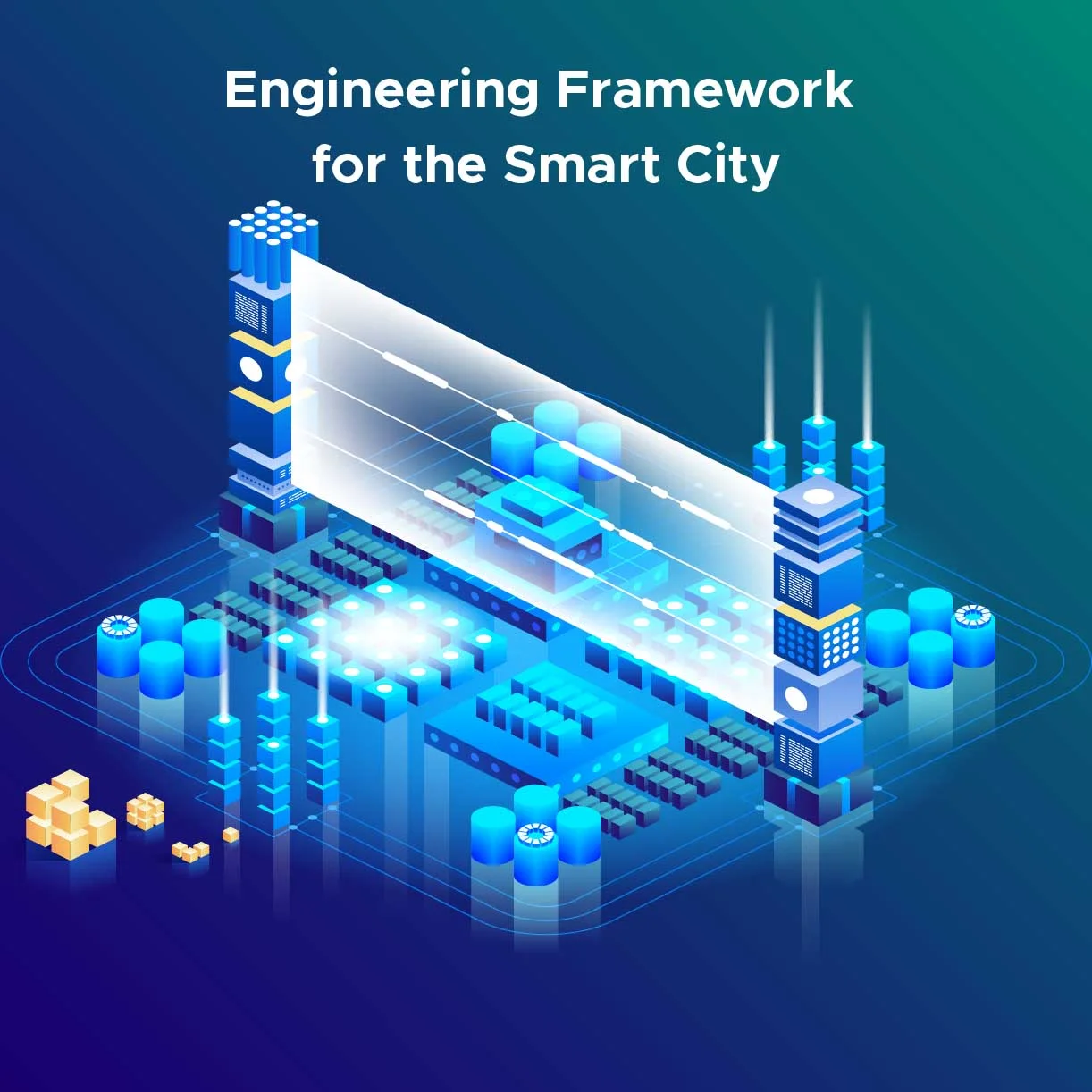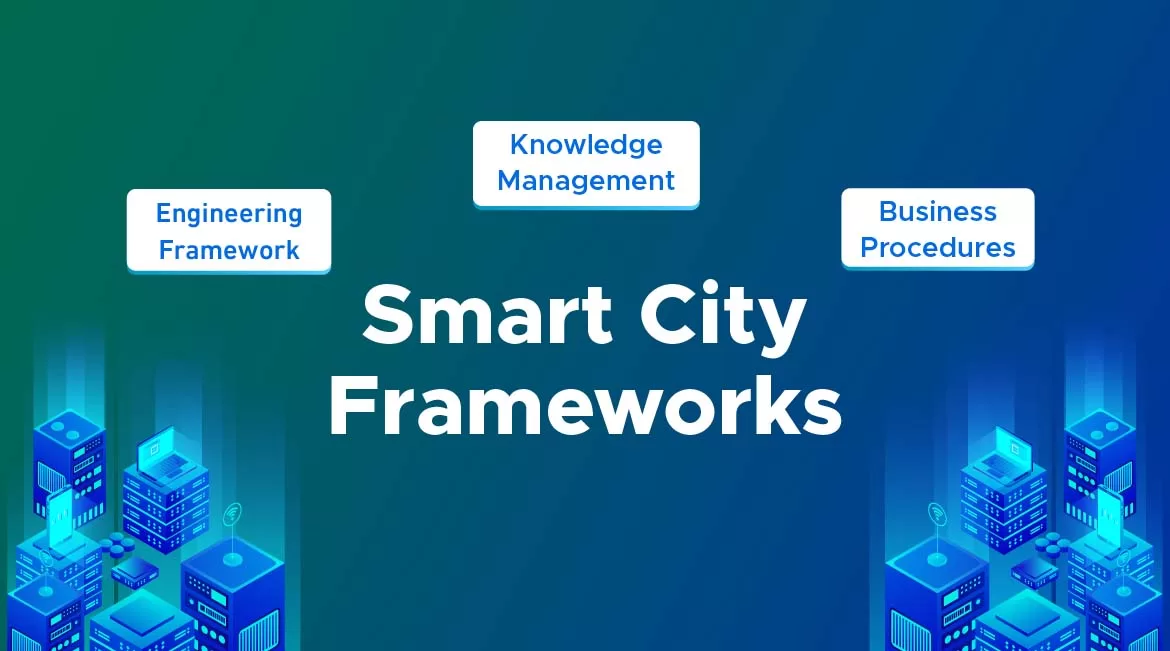Smart city frameworks
Planning and implementing a smart city consists of 3 main frameworks:
- Business procedures framework in the smart city
- Knowledge management framework in the smart city
- Engineering framework for the smart city
These three frameworks represent the unified frame of reference for the smart city.

1. Business Procedures Framework in the Smart City
The Smart City Business Procedures Framework is a tool used to guide the development and implementation of smart city initiatives. It is a set of guidelines that describe the processes, procedures and business activities required to successfully plan, design, implement and manage smart city solutions.
The framework provides a structured approach to managing smart city projects and enables project stakeholders to work collaboratively, set clear goals and objectives and make optimal use of resources. It provides a step-by-step guide to the key activities and procedures involved in implementing smart city solutions from the initial planning phase to the post-implementation evaluation phase.

2. Knowledge Management Framework in the Smart City
The Smart City Knowledge Management Framework is a tool used to manage and share knowledge in the context of smart city initiatives, it is a set of guidelines that describe the processes and activities required to collect, organize, exchange and share knowledge related to smart city projects, technologies and best practices.
The framework is designed to address the challenge of managing and sharing knowledge in complex and dynamic smart city environments. It provides a structured approach to capturing and sharing knowledge among smart city stakeholders, including city officials, technology providers, researchers and other organizations.

3. Engineering Framework for the Smart City
The Smart City Engineering Framework is a set of principles and guidelines used to design, build and manage the physical infrastructure and technical systems of a smart city. It is a comprehensive approach that takes into account community needs, the latest technologies and innovative solutions to create a sustainable and livable environment.
Want to know more details up close?
Do not lose sight of the compass. Contact us to request advice
RMG Framework Services for Smart Cities
We design a reference architecture and design an ontology that can be used to facilitate the interoperability of smart city systems and services.
We define a set of common principles, concepts, and terminology to describe and classify smart city components, such as sensors, devices, networks, and applications.
We provide a customizable framework that can be used by smart city stakeholders, including city officials, technology providers, organizations and other entities, to ensure that their systems and services are interoperable and can communicate with each other. This can help enable the integration of disparate systems and technologies, supporting the creation of more efficient, sustainable and livable smart cities.
We provide a common framework and language for describing and classifying smart city components, which can help improve interoperability, reduce complexity, and facilitate innovation.
The design of smart city frameworks includes many guidelines and best practices to ensure smart city interoperability, The following steps are an example of the approach we use:
- Understanding the scope and objectives: Review the standard and ensure that we have a clear understanding of the scope and objectives of the standard, as well as the reference structure and ontology it provides us.
- Conduct a needs assessment: Conduct a needs assessment to determine the specific smart city components we need for interoperability, as well as the standards, protocols, and technologies used.
- Define interoperability requirements: Based on the needs assessment, define interoperability requirements for our smart city components. This may include specific data formats, communication protocols, and other technical requirements.
- Develop an implementation plan: Develop an implementation plan that specifies the steps and timelines for implementing interoperability requirements, as well as the resources and tools required.
- Working with Stakeholders: Work with stakeholders, including city officials, technology providers and other organizations, to ensure interoperability requirements are well understood and all parties are committed to achieving interoperability.
- Implement reference structure and ontology: Use reference structure and ontology to develop a common framework for describing and classifying smart city components.
- Testing and Evaluation: Test and evaluate the interoperability of smart city components using interoperability requirements, reference structure, and ontology. Make modifications as necessary to ensure that components are able to communicate, interoperate, and interact effectively.
- Maintenance and Modernization: Keep, update, and maintain interoperability requirements, reference structure and ontology as needed to ensure they remain relevant and effective.
As a consulting company in the field of smart cities, we are very keen on delivering the value and benefits of our services to customers effectively.
What are the factors that encourage customers to work with us?
Introducing the company's value proposition: Clearly express the unique value that our consulting company provides, such as deep expertise in smart city planning and implementation, expertise in successful smart city projects, and commitment to achieving measurable results.
The company provides a clear roadmap: We provide a clear roadmap that outlines the steps and timelines involved in the smart city planning and implementation process. This can help clients understand what to expect and feel confident that we have a well-defined and proven process.
Proven track record: We have many case studies and success stories from our previous projects that prove the effectiveness of our approach and the positive impact we have had on other cities.
The company provides continuous support: We offer ongoing support to our customers, such as regular access registration processes and progress reports, to ensure that the smart city solutions we provide are effective and compatible with their evolving needs.
The company offers customized solutions: We can provide customized smart city solutions to meet the unique needs and goals of our customers.
Transparent and Trustworthy Company: We are transparent about requirements, fees, and procedures and communicate openly with our clients throughout the engagement. This can help build trust and foster long-term customer relationships.














